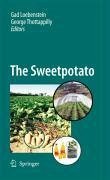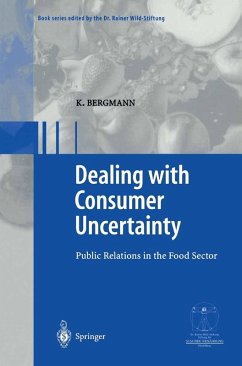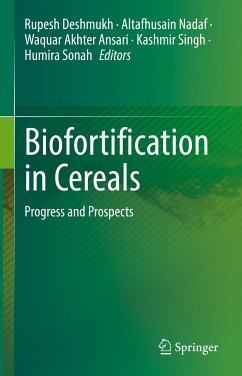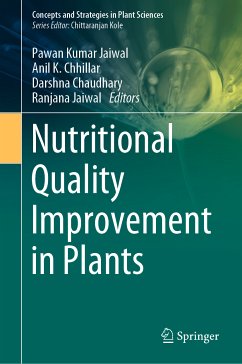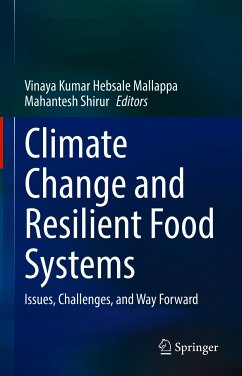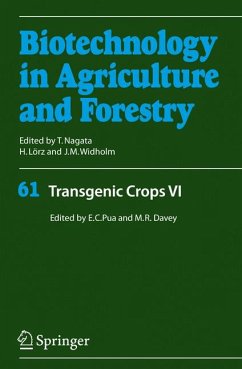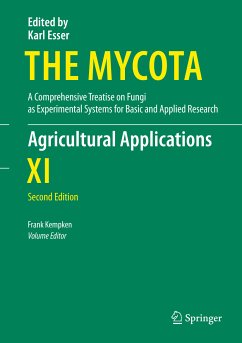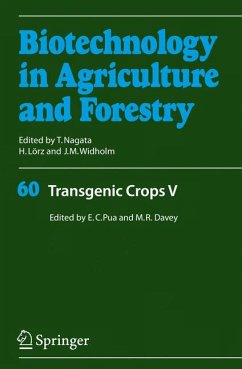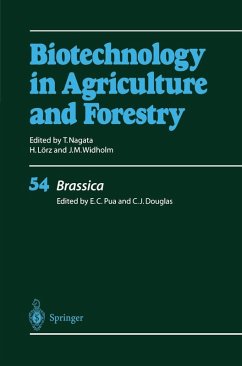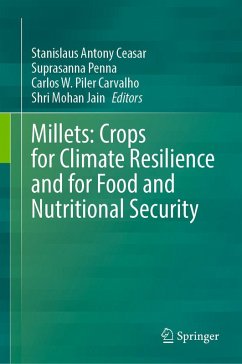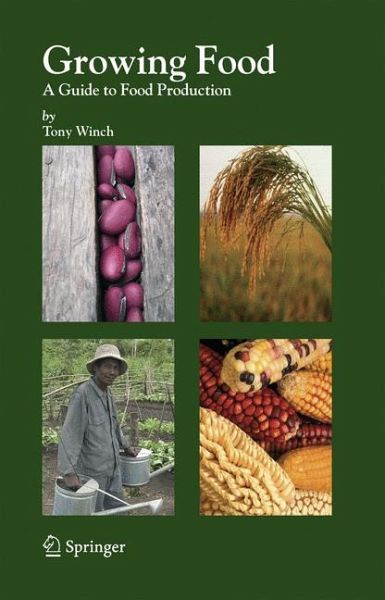
Growing Food (eBook, PDF)
A Guide to Food Production
Versandkostenfrei!
Sofort per Download lieferbar
136,95 €
inkl. MwSt.
Weitere Ausgaben:

PAYBACK Punkte
68 °P sammeln!
This handbook offers a quick and easy reference guide for individuals and organizations involved with the production of food, from both agriculture and horticulture. Designed to be accessible for those who normally speak or read English as their second language, it offers thorough explanations and numerous cross references to the terminology, acronyms and technologies used.This reference book answers basic questions about how food is produced from plants and aims to demystify the subject of growing food. The focus is firmly on the technical aspects of food crops, animal husbandry, agrochemical...
This handbook offers a quick and easy reference guide for individuals and organizations involved with the production of food, from both agriculture and horticulture. Designed to be accessible for those who normally speak or read English as their second language, it offers thorough explanations and numerous cross references to the terminology, acronyms and technologies used.
This reference book answers basic questions about how food is produced from plants and aims to demystify the subject of growing food. The focus is firmly on the technical aspects of food crops, animal husbandry, agrochemicals and genetic engineering are only briefly mentioned. The book is divided into three sections: principles and practices used in agriculture and horticulture; description and characteristics of the main food crops; naming and classification of plants, seed purchase procedures, conversion tables and statistics, planning and assessing agricultural projects.
This reference book answers basic questions about how food is produced from plants and aims to demystify the subject of growing food. The focus is firmly on the technical aspects of food crops, animal husbandry, agrochemicals and genetic engineering are only briefly mentioned. The book is divided into three sections: principles and practices used in agriculture and horticulture; description and characteristics of the main food crops; naming and classification of plants, seed purchase procedures, conversion tables and statistics, planning and assessing agricultural projects.
Dieser Download kann aus rechtlichen Gründen nur mit Rechnungsadresse in A, B, BG, CY, CZ, D, DK, EW, E, FIN, F, GR, HR, H, IRL, I, LT, L, LR, M, NL, PL, P, R, S, SLO, SK ausgeliefert werden.




